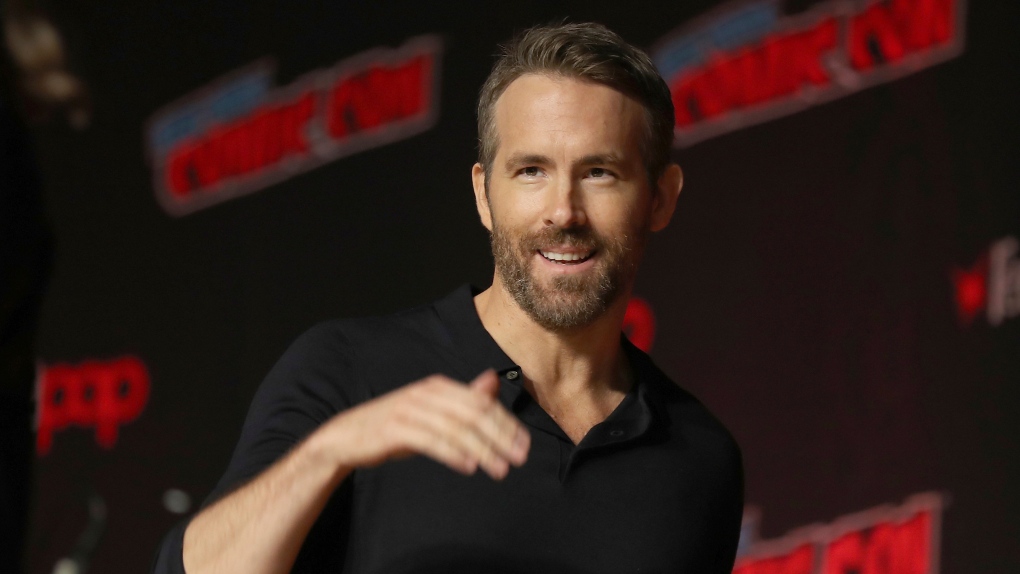Media
Supreme Court to Decide How the First Amendment Applies to Social Media – The New York Times

The most important First Amendment cases of the internet era, to be heard by the Supreme Court on Monday, may turn on a single question: Do platforms like Facebook, YouTube, TikTok and X most closely resemble newspapers or shopping centers or phone companies?
The two cases arrive at the court garbed in politics, as they concern laws in Florida and Texas aimed at protecting conservative speech by forbidding leading social media sites from removing posts based on the views they express.
But the outsize question the cases present transcends ideology. It is whether tech platforms have free speech rights to make editorial judgments. Picking the apt analogy from the court’s precedents could decide the matter, but none of the available ones is a perfect fit.
If the platforms are like newspapers, they may publish what they want without government interference. If they are like private shopping centers open to the public, they may be required to let visitors say what they like. And if they are like phone companies, they must transmit everyone’s speech.
“It is not at all obvious how our existing precedents, which predate the age of the internet, should apply to large social media companies,” Justice Samuel A. Alito Jr. wrote in a 2022 dissent when one of the cases briefly reached the Supreme Court.
Supporters of the state laws say they foster free speech, giving the public access to all points of view. Opponents say the laws trample on the platforms’ own First Amendment rights and would turn them into cesspools of filth, hate and lies. One contrarian brief, from liberal professors, urged the justices to uphold the key provision of the Texas law despite the harm they said it would cause.
What is clear is that the court’s decision, expected by June, could transform the internet.
“It is difficult to overstate the importance of these cases for free speech online,” said Scott Wilkens, a lawyer with the Knight First Amendment Institute at Columbia University, which filed a friend-of-the-court brief in support of neither side in the two cases, saying each had staked out an extreme position.
The cases concern laws enacted in 2021 in Florida and Texas aimed at prohibiting major platforms from removing posts expressing conservative views. They differed in their details but were both animated by frustration on the right, notably the decisions of some platforms to bar President Donald J. Trump after the Jan. 6, 2021, attack on the Capitol.
In a statement issued when he signed the Florida bill, Gov. Ron DeSantis, a Republican, said the law was meant to promote right-leaning viewpoints. “If Big Tech censors enforce rules inconsistently, to discriminate in favor of the dominant Silicon Valley ideology, they will now be held accountable,” he said.
Gov. Greg Abbott of Texas, also a Republican, said much the same thing when he signed his state’s bill. “It is now law,” he said, “that conservative viewpoints in Texas cannot be banned on social media.”
The two trade groups that challenged the laws — NetChoice and the Computer & Communications Industry Association — said the platforms had the same First Amendment rights as conventional news outlets.
“Just as Florida may not tell The New York Times what opinion pieces to publish or Fox News what interviews to air,” the groups told the justices, “it may not tell Facebook and YouTube what content to disseminate. When it comes to disseminating speech, decisions about what messages to include and exclude are for private parties — not the government — to make.”
The states took the opposite position. The Texas law, Ken Paxton, the state’s attorney general, wrote in a brief, “just enables voluntary communication on the world’s largest telecommunications platforms between speakers who want to speak and listeners who want to listen, treating the platforms like telegraph or telephone companies.”
The two laws met different fates in the lower courts.
In the Texas case, a divided three-judge panel of the U.S. Court of Appeals for the Fifth Circuit reversed a lower court’s order blocking the state’s law.
“We reject the platforms’ attempt to extract a freewheeling censorship right from the Constitution’s free speech guarantee,” Judge Andrew S. Oldham wrote for the majority. “The platforms are not newspapers. Their censorship is not speech.”
In the Florida case, the 11th Circuit largely upheld a preliminary injunction blocking the state’s law.
“Social media platforms exercise editorial judgment that is inherently expressive,” Judge Kevin C. Newsom wrote for the panel. “When platforms choose to remove users or posts, deprioritize content in viewers’ feeds or search results, or sanction breaches of their community standards, they engage in First Amendment-protected activity.”
Forcing social media companies to transmit essentially all messages, their representatives told the justices, “would compel platforms to disseminate all sorts of objectionable viewpoints — such as Russia’s propaganda claiming that its invasion of Ukraine is justified, ISIS propaganda claiming that extremism is warranted, neo-Nazi or K.K.K. screeds denying or supporting the Holocaust, and encouraging children to engage in risky or unhealthy behavior like eating disorders.”
Supporting briefs mostly divided along the predictable lines. But there was one notable exception. To the surprise of many, some prominent liberal professors filed a brief urging the justices to uphold a key provision of the Texas law.
“There are serious, legitimate public policy concerns with the law at issue in this case,” wrote the professors, including Lawrence Lessig of Harvard, Tim Wu of Columbia and Zephyr Teachout of Fordham. “They could lead to many forms of amplified hateful speech and harmful content.”
But they added that “bad laws can make bad precedent” and urged the justices to reject the platforms’ plea to be treated as news outlets.
“To put a fine point on it: Facebook, Twitter, Instagram and TikTok are not newspapers,” the professors wrote. “They are not space-limited publications dependent on editorial discretion in choosing what topics or issues to highlight. Rather, they are platforms for widespread public expression and discourse. They are their own beast, but they are far closer to a public shopping center or a railroad than to The Manchester Union Leader.”
In an interview, Professor Teachout linked the Texas case to the Citizens United decision, which struck down a campaign finance law regulating corporate spending on First Amendment grounds.
“This case threatens to be another expansion of corporate speech rights,” she said. “It may end up in fact being a Trojan horse, because the sponsors of the legislation are so distasteful. We should be really wary of expanding corporate speech rights just because we don’t like particular laws.”
Other professors, including Richard L. Hasen of the University of California, Los Angeles, warned the justices in a brief supporting the challengers that prohibiting the platforms from deleting political posts could have grave consequences.
“Florida’s and Texas’ social media laws, if allowed to stand,” the brief said, “would thwart the ability of platforms to moderate social media posts that risk undermining U.S. democracy and fomenting violence.”
The justices will consult two key precedents in trying to determine where to draw the constitutional line in the cases to be argued Monday, Moody v. NetChoice, No. 22-277, and NetChoice v. Paxton, No. 22-555.
One of them, Pruneyard Shopping Center v. Robins from 1980, concerned a sprawling private shopping center in Campbell, Calif., whose 21 acres included 65 shops, 10 restaurants and a movie theater. It was open to the public but did not permit, as Justice William H. Rehnquist put it in his opinion for the court, “any publicly expressive activity, including the circulation of petitions, that is not directly related to its commercial purposes.”
That policy was challenged by high school students who opposed a U.N. resolution against Zionism and were stopped from handing out pamphlets and seeking signatures for a petition.
Justice Rehnquist, who would be elevated to chief justice in 1986, wrote that state constitutional provisions requiring the shopping center to allow people to engage in expressive activities on its property did not violate the center’s First Amendment rights.
In the second case, Miami Herald v. Tornillo, the Supreme Court in 1974 struck down a Florida law that would have allowed politicians a “right to reply” to newspaper articles critical of them.
The case was brought by Pat L. Tornillo, who was unhappy about colorful editorials in The Miami Herald opposing his candidacy for the Florida House of Representatives. The newspaper said Mr. Tornillo, a labor union official, had engaged in “shakedown statesmanship.”
Chief Justice Warren E. Burger, writing for a unanimous court in striking down the law, said the nation was in the middle of “vast changes.”
“In the past half century,” he wrote, “a communications revolution has seen the introduction of radio and television into our lives, the promise of a global community through the use of communications satellites and the specter of a ‘wired’ nation.”
But Chief Justice Burger concluded that “the vast accumulations of unreviewable power in the modern media empire” did not permit the government to usurp the role of editors in deciding what ought to be published.
“A responsible press is an undoubtedly desirable goal,” he wrote, “but press responsibility is not mandated by the Constitution, and like many other virtues it cannot be legislated.”
Media
Mélanie Maynard Hosts Sophie Bourgeois on Sucré Salé: A Heartfelt Conversation
Media
Ryan Reynolds Jokes About Taylor Swift’s Astronomical Babysitting Rates

Ryan Reynolds and Blake Lively are a Hollywood power couple with four adorable children. But juggling busy careers and a growing family can be a challenge, even for A-listers. Enter their close friend, pop icon Taylor Swift, who, according to Reynolds, might be their go-to babysitter. However, her services come with a hefty price tag (at least according to Reynolds‘ playful exaggeration).
During a recent E! News interview promoting their upcoming movie “Deadpool & Wolverine,” Hugh Jackman playfully suggested that Swift was the real nanny for Reynolds and Lively’s four children. This lighthearted jab sparked a humorous response from Reynolds.
Known for his sharp wit, Reynolds responded to Jackman’s comment with a hilarious quip. He stated that the cost of having Taylor Swift babysit would be “cost-prohibitive,” implying that her rates would be astronomically high. He even playfully added, “But I think what he meant was, ‘Cost-insane-what-are-you-doing-I’m-no-longer-you’re-accountant.'”
Reynolds and Lively, who tied the knot in 2012, share four children: James (9), Inez (7), Betty (4), and a one-year-old whose name and gender remain private. The couple has maintained a close friendship with Swift over the years. This strong bond is evident in their recent attendance at a stop of her Eras Tour in Spain, along with their three eldest children.
Swift’s friendship with the Reynolds family extends beyond casual hangouts. During the concert in Spain, she gave a heartwarming shout-out to the couple’s daughters. While introducing her album “Folklore,” she mentioned the names James, Inez, and Betty, sending the audience into a frenzy. This sweet gesture further highlights the special bond between the singer and the Reynolds children.
This isn’t the first time Swift has incorporated the girls’ names into her music. Her 2020 album “Folklore” features a song titled “Betty” that tells a story of a love triangle involving characters named James, Inez, and Betty. Additionally, her 2017 album “Reputation” included a voice recording of James on the song “Gorgeous.”
Whether Swift truly babysits for the Reynolds family or not remains a playful mystery. However, one thing is certain: the singer holds a special place in the hearts of the Reynolds children and their parents.
Media
The Simmering Feud Between Eva Mendes and Rachel McAdams

The 2004 romantic drama “The Notebook” continues to be a pop culture phenomenon, captivating audiences with its passionate love story between Noah and Allie, played by Ryan Gosling and Rachel McAdams. But beyond the on-screen romance, rumours of tension between the actors and Gosling’s current partner, Eva Mendes, have added a layer of intrigue to the film’s legacy.
From Clashing Personalities to Real-Life Romance
While their undeniable on-screen chemistry led to a blockbuster performance, Gosling and McAdams reportedly had a tumultuous time during filming. “We inspired the worst in each other,” Gosling admitted to The Guardian. However, their initial animosity blossomed into a real-life romance in 2005, sending shivers down the spines of fans who had rooted for Noah and Allie.
Love Found, Love Lost
Their off-screen love story, however, wasn’t a fairytale. After two years, the couple went their separate ways. McAdams found happiness and a family with screenwriter Jamie Linden, while Gosling met his current partner, Eva Mendes, on the set of “The Place Beyond the Pines” in 2011. Together, they have built a life and share two daughters.
A Post-Breakup Conundrum: Maintaining a Friendship
While McAdams and Gosling’s romantic flame fizzled out, reports suggest they remained amicable post-breakup. This friendly dynamic, however, is said to have shifted when Mendes entered the picture.
A Shadow of Jealousy? Unconfirmed Rumors of Tension
Unverified reports claim that Mendes is allegedly uncomfortable with McAdams being around Gosling. Unnamed sources allege that Mendes discourages any interaction between the former co-stars, fearing it might upset her. This has reportedly limited Gosling’s ability to maintain a casual friendship with McAdams.
The validity of these claims remains shrouded in mystery. Mendes and Gosling are known for their privacy, making it difficult to separate truth from speculation.
Beyond the Rumors: The Power of “The Notebook” Endures
While the rumors of off-screen tension add another chapter to the “The Notebook” narrative, the film’s enduring power lies in its timeless portrayal of love and loss. Whether Gosling and McAdams remained friends or not doesn’t diminish the on-screen magic they created. The film’s ability to resonate with audiences continues, reminding us of the intensity of first love, the pain of heartbreak, and the enduring power of memories.
The Notebook’s legacy is a complex one, weaving together a captivating on-screen love story, rumored off-screen tension, and a reminder of the film’s lasting impact on pop culture.
-

 News7 hours ago
News7 hours agoAfter grind of MLS regular season, Toronto FC looks forward to Leagues Cup challenge
-

 News21 hours ago
News21 hours agoCanadaNewsMedia news July 26, 2024: B.C. crews wary of winds boosting wildfires
-

 News13 hours ago
News13 hours agoOntario expanding access to RSV vaccines for young children, pregnant women
-

 News8 hours ago
News8 hours agoIn President Milei’s sit-down with Macron, Argentina says the leaders get past soccer chant fallout
-

 News21 hours ago
News21 hours agoPeople should stay inside, filter indoor air amid wildfire smoke, respirologist says
-

 News22 hours ago
News22 hours agoFrench train lines hit by ‘malicious acts’ disrupting traffic ahead of Olympics, rail company says
-

 News15 hours ago
News15 hours agoFederal grand jury charges short seller Andrew Left in $16M stock manipulation scheme
-

 News19 hours ago
News19 hours agoDominant US basketball, soccer teams driving high betting interest on Olympics























